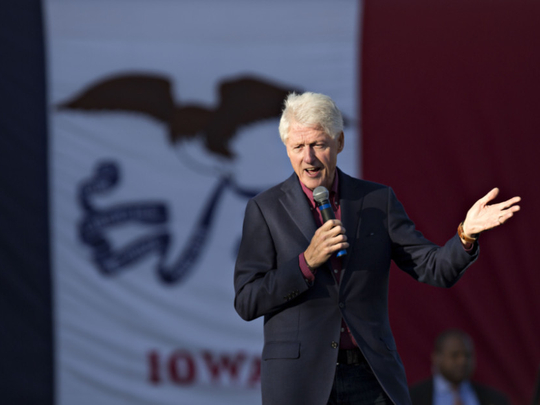
In 1978 the documentary Scared Straight! recorded an exciting new idea in crime fighting: A group of juvenile delinquents was taken to visit a prison, where inmates screamed at them about the horrors of criminal life. The idea was to “scare them straight”. The film ends with the teenagers saying they don’t want to go to prison. Scared Straight! won an Oscar, ran on US television, and inspired many new “Scared Straight” projects.
There’s just one problem, says Lawrence Sherman, professor of criminology at Cambridge university: ‘Scared Straight’ doesn’t work. Multiple studies have shown that the programme seems to increase crime among young participants. The United States Department of Justice now discourages its use, though some cities still itch to introduce it.
The story of Scared Straight! is typical. Most policies fail. Voters have learnt this the hard way. Many have given up on big ideas, and now just seek candidates who pretend to be authentic. However, there is hope. We have entered a new age of evidence-based small ideas.
In the middle of the past century, big ideas still ruled. Freud claimed to explain human behaviour. In economics, Karl Marx and Ayn Rand, sirens of left and right, faced off in a battle of grand theory. Generally, mid-century intellectuals thought big. “What is man?” was a popular question from the 1930s until the 1970s, writes Mark Greif in his recent The Age of the Crisis of Man. A budding intellectual often needed just one conversation - typically in a university dorm room aged 19 — to equip himself for life with a theory that explained the world.
Politicians, too, thought big. The democratic left tried vast social projects such as Lyndon B. Johnson’s Great Society.
But one by one, the big ideas failed. A former member of a Maoist cell in Amsterdam once described to me his group’s final meeting, circa 1985. “We all admitted to each other that we didn’t really believe it any more,” he said. “So we dissolved.” Marx, like Sigmund Freud, had finally died.
The democratic left’s big projects also hit obstacles. Western countries had been making social policy for centuries, so the easy pickings - providing clean water, for instance — had already been picked. The remaining problems — giving poor children a good education, say — proved almost intractable.
Briefly, the right’s cult of free markets was the last surviving big idea. Then the financial crisis of 2008 killed it off almost everywhere outside the US Republican party.
In the 1990s, centrist leaders such as former British prime minister Tony Blair and former US president Bill Clinton had started the search for small ideas. Blair rejected “outdated ideology” in favour of “what works”. If a Tasmanian programme to educate poor kids reported good results, his wonks would introduce it in Britain.
This sounded great until social scientists increasingly began to test “what works”. It turned out that very little did.
Testing is even harder in social sciences than in medicine. However, social scientists have tried to recreate medicine’s randomised controlled trials, and to aggregate lots of past studies. Testing suggests that many policies, such as ‘Scared Straight’, are actively harmful. Others, such as microcredit for poor entrepreneurs, just seem ineffectual, says Esther Duflo, development economist at the Massachusetts Institute of Technology.
One response is despair: “Nothing works!” Certainly, many voters have lost faith in anything but angry nationalism. Even a new messiah such as Donald Trump doesn’t claim to offer big ideas. He just offers himself: I can fix the US because I’m me.
But growing numbers of academics in fields from development economics to psychology have a more hopeful response. They think rigorous testing can reveal policies that work, at least in some places, sometimes. “I believe in small ideas,” Duflo told me. In Isaiah Berlin’s famous phrasing, she is a fox, who knows many little things, not a hedgehog who knows one big thing.
Some small ideas have been supported by evidence. Putting police in “crime hotspots”, even for just 15 minutes, appears to cut crime, says Sherman. To encourage teachers in poor countries to come to work, pay them if they can show a photo of themselves taken with their class each day, says Duflo. Cognitive behavioural therapy often helps troubled people, says Nuala Livingstone, psychologist at Queen’s University Belfast. (They all spoke at last month’s fascinating conference on “evidence-based policy” at France’s AcadEmie des Sciences.)
Admittedly, these ideas might fail in different contexts. Pilot them at small scale, and expand them if they deliver, recommends Duflo.
Today’s most influential thinkers on society are evidence-based. Angus Deaton, this year’s economics Nobel laureate, is known for innovative statistical techniques. Daniel Kahneman, Steven Pinker and Thomas Piketty aren’t grand theorists like Marx or Freud. They argue from experiments, datasets and statistical analyses. To refute them, you have to dispute their evidence.
This isn’t as exciting as a politician who can explain the world in 15 minutes. Duflo admits: “It’s harder to seduce people with small ideas.” Small ideas tend to be complex, boring, and produce modest results at best. But they do bring us a tiny bit closer to that elusive moving target, the truth.
— Financial Times











